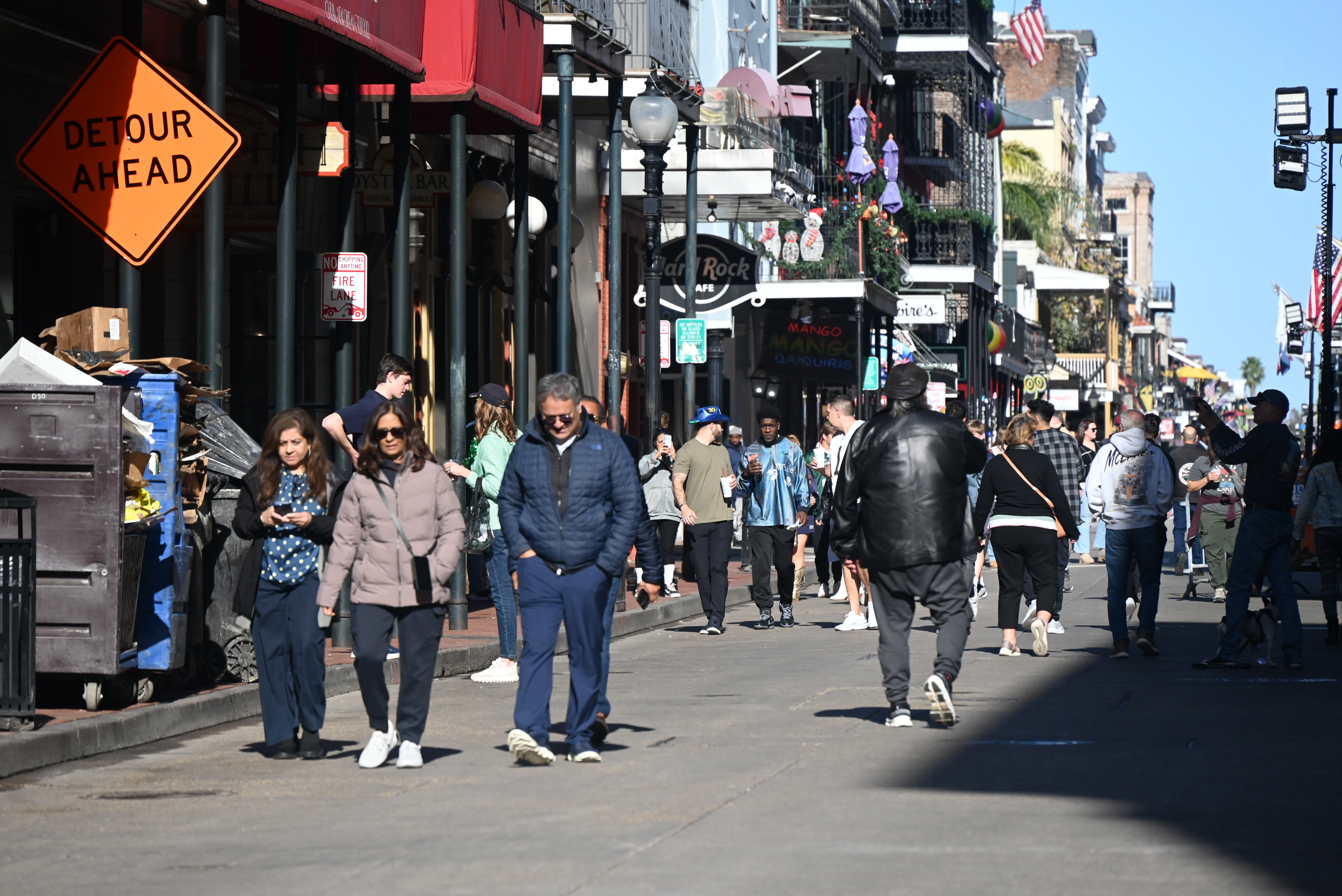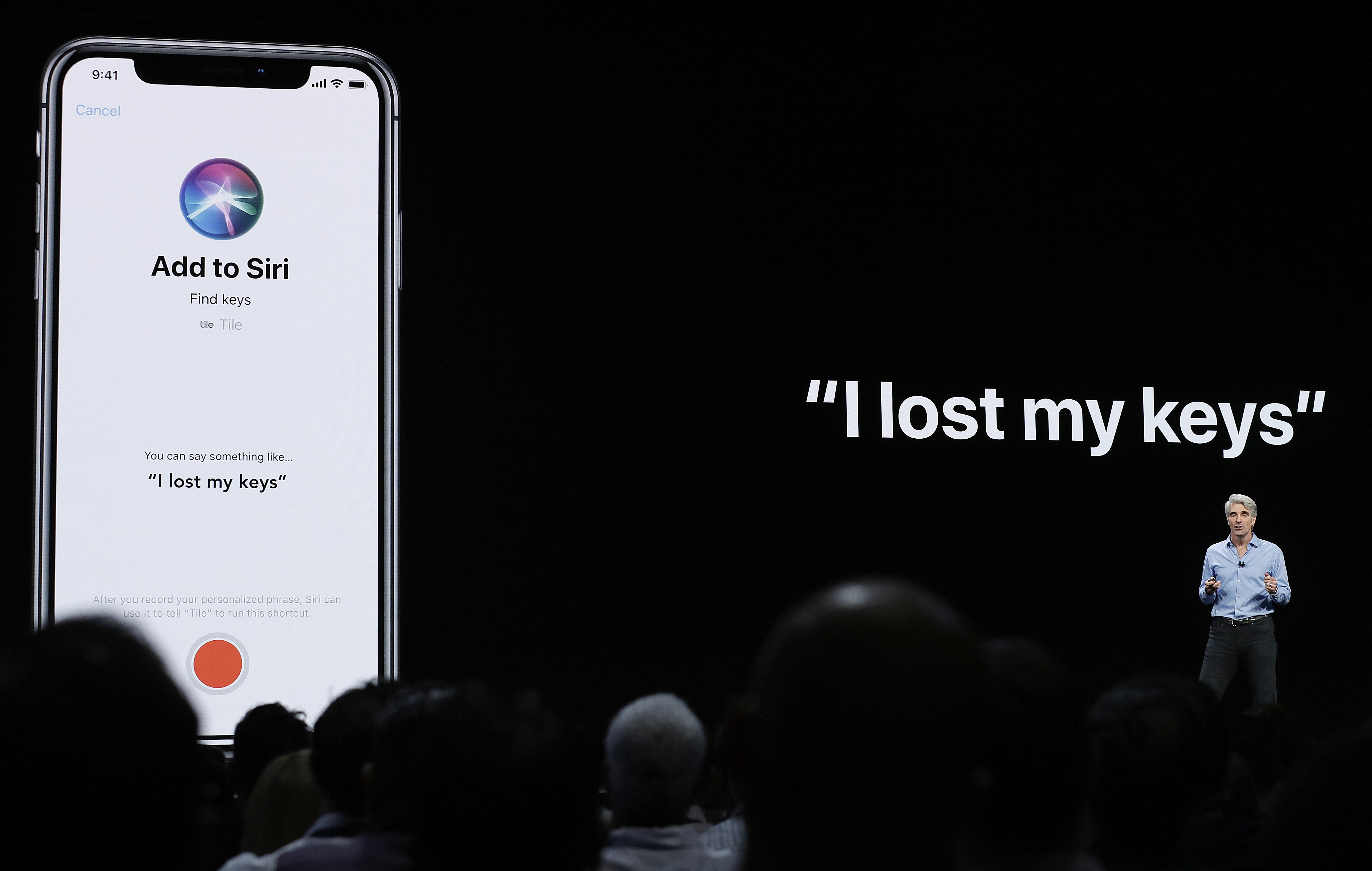
President Joe Biden on Friday for the first time publicly apologized to Ukraine for a monthslong congressional holdup in American military assistance that let Russia make gains on the battlefield.
Biden met in Paris with Ukrainian President Volodymyr Zelenskyy, who appealed for bipartisan U.S. support going forward “like it was during World War II.”
A day earlier, the two had attended ceremonies marking the 80th anniversary of the D-Day landings in Normandy, where Biden had drawn common cause between the allied forces that helped free Europe from Nazi Germany and today's effort to support Ukraine against Russia's invasion and Zelenskyy had been greeted with a rapt ovation.
“I apologize for those weeks of not knowing what’s going to happen in terms of funding,” Biden said, referring to the six-month holdup by conservative Republicans in Congress to a $61 billion military aid package for Ukraine. Still, the Democratic president insisted that the American people were standing by Ukraine for the long haul. “We’re still in. Completely. Thoroughly,” he said.
The apology — and Zelenskyy’s plea for rock-solid support akin to the allied coalition in WWII — served as a reminder that for all of Biden’s talk of an unflagging U.S commitment to Ukraine, recalcitrance among congressional Republicans and an isolationist strain in American politics have exposed its fragility. And, although unremarked upon, the specter of Donald Trump’s candidacy loomed over the discussion, as the Republican former president and the presumptive nominee has spoken positively of Russian President Vladimir Putin and sparked Ukrainian concerns that he would call for it to cede territory to end the conflict.
Zelenskyy pressed for all Americans to support his country's defense against Russia's invasion, and he thanked lawmakers for eventually coming together to approve the weapons package, which has allowed Ukraine to stem Russian advances in recent weeks.
U.S. & World
“It’s very important that in this unity, United States of America, all American people stay with Ukraine like it was during World War II,” Zelenskyy said. "How the United States helped to save human lives, to save Europe. And we count on your continuing support in standing with us shoulder to shoulder.”
The United States is by far Kyiv’s biggest supplier of wartime support, and Ukraine is trying to fend off an intense Russian offensive in eastern areas of the country. The push is focused on the Ukrainian border regions of Kharkiv and Donetsk, but Ukrainian officials say it could spread as Russia's bigger army seeks to make its advantage tell.
Feeling out of the loop? We'll catch you up on the Chicago news you need to know. Sign up for the weekly> Chicago Catch-Up newsletter.
The offensive is seeking to exploit Kyiv’s shortages of ammunition and troops along the roughly 1,000-kilometer (620-mile) front line.
The slow pace of delivery of pledged Western weaponry has long frustrated Zelenskyy, as has Biden’s hesitation over supplying more hardware for fear of provoking Russian President Vladimir Putin. That has caused tension in their relationship.
The U.S. will send about $225 million in military aid to Ukraine, Biden announced Friday. The latest package includes munitions for the High Mobility Artillery Rocket System, or HIMARS, as well as mortar systems and an array of artillery rounds, U.S. officials said Thursday.
A Ukrainian strike on its partially-occupied Luhansk region using U.S.-made ATACMS missiles killed three people and injured 35 others Friday, local Moscow-appointed authorities said.
Biden cast the additional aid in his meeting with Zelenskyy as money to “reconstruct the electric grid” in Ukraine, a reference aides said was to additional air defense and missile defense systems in the new package.
Easing their stance amid Russia's most recent onslaught and with Ukraine's army reeling, some NATO allies including the U.S. said last week they would allow Ukraine to use weapons they deliver to Kyiv to carry out limited attacks inside Russia.
That step brought a furious response from the Kremlin, which warned that Europe's biggest conflict since World War II could spin out of control.
Biden and Zelenskyy attended the anniversary events of D-Day in Normandy, northern France, on Thursday, along with European leaders who have supported Kyiv’s efforts in the war. Biden pledged “we will not walk away” from Ukraine, drawing a direct line from the fight to liberate Europe from Nazi domination to today’s war against Russian aggression.
Ukraine depicts its fight against the Kremlin's forces as a clash between Western democratic freedom and Russian tyranny. Russia says it is defending itself against a menacing eastward expansion of the NATO military alliance.
In a 20-minute speech Friday at the National Assembly, the lower house of the French parliament, Zelenskyy drew a parallel with the sacrifices made during World War II and his country's current fight.
“This battle is a crossroads," Zelenskyy said. "A moment where we can now write history the way we need it. Or we can become victims of history as it suits … our enemy.”
Zelenskyy, who spoke in Ukrainian, was frequently interrupted by lawmakers’ applause and cheers. He prompted a standing ovation when he said in French: “Dear France, I thank you for standing by our side as we defend life.”
French President Emmanuel Macron, meanwhile, announced late Thursday that France will provide Ukraine with its Mirage combat aircraft.
Macron has been a vocal supporter of Ukraine. He said in February that putting Western troops on the ground in Ukraine is not “ruled out.”
Zelenskyy began a day of meetings in Paris with an official welcome ceremony at the golden-domed Invalides monument, site of Napoleon’s tomb.
During the day, Zelenskyy skipped a scheduled visit to the Nexter arms manufacturer in Versailles, which makes the Caesar self-propelled howitzers that are among the weapons provided by France to Kyiv’s forces. He went instead to France’s military headquarters with defense manufacturers, and his delegation signed defense agreements.
He was also to meet with Macron at the Élysée Palace.
Zelenskyy’s foreign trips aim to keep Ukraine’s plight in the public eye, secure more military help for its fight against Russia’s invasion and lock in long-term Western support through bilateral alliances.
France and Ukraine in February signed a 10-year bilateral security agreement. Zelenskyy has since signed similar bilateral agreements with many European countries.



